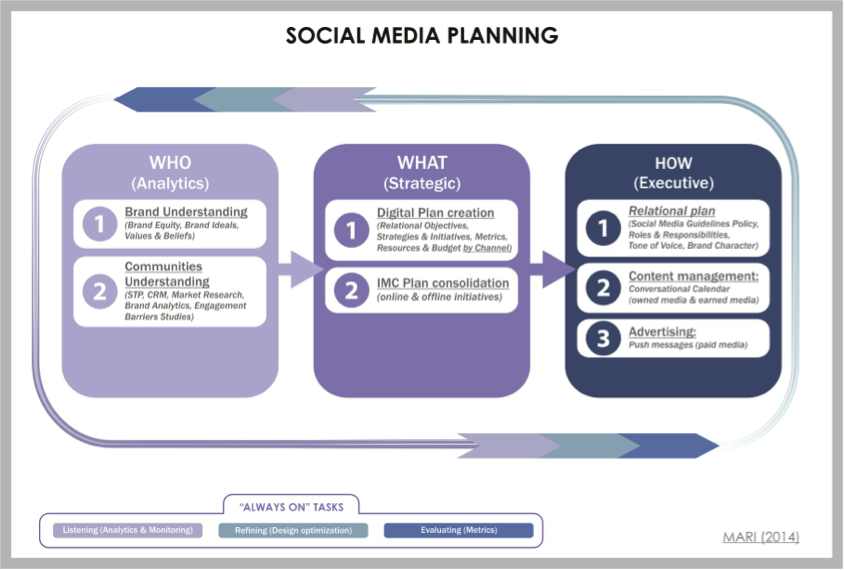Is Social Media revolutionary?
The large explosion of brand communities is practically attributed to the diffusion of the Internet. The advent of the Internet and more recently social media - where Internet users collaborate, share information, and opinions - are the critical phenomenons of the past decade in communication.
Depending on the definition of the term “social media”, we can identify millions (if not billions) of users who participate in online communities as an ordinary ingredient of their social experience (see Robert Kozinets). In investigating this phenomenon, the literature has widely adopted the label of social media (social web or Web 2.0) to identify an online environment where people with common interests can gather together to share thoughts, ideas, and opinions on products or brands.
In this context, social media markets are conceived as made by interactions and stories between people who use digital social platforms as a new form of communication media and a social environment. Compared to the past, these users are not passively consuming published content, but rather actively communicating with one another, thus becoming media players (see Andreina Mandelli).

The online environment can under many circumstances be used as a medium of meaningful social exchange, where collectives of customers form new global niches, segments, and where electronic tribes convene. These communities, which recently show impressive growth, are no longer bounded by local, spatial, or temporal environments, and thus represent immense opportunities for market-oriented consumer interactions.
Social media is an invaluable research site offering extraordinary opportunities for marketers to study tastes, desires, and other needs of consumers as part of a specific community. Social media vehicles are putting consumers closer to companies so that consumers can be conceived as part of the organization.
This evolution has led to the idea that brand managers can utilize social platforms to build and manage relationships with consumer communities.
In my personal view, the abundance of information related to social media (thousands of books, presentations, videos and audio files), have prompted Stendhal syndrome where corporate managers are frozen in front of this huge amount of ‘beauty’ that they do not completely understand. Today, anyone can be a social media expert but the quality of advice and suggestions is rather low. This hype for social media made managers believe that FB fan pages, Twitter, or YouTube accounts were the answers to all their business challenges - Erroneously, of course.
Social Media appears to have profound communication implications, however managers must recognize thatsocial media is nothing more than a communication enabler.
In the end, social media is simply a technology that enables (Mandelli and Mari, 2010):1. Consumers to become media agents (UGC) and communicate in a many-to-many way;2. Companies to connect with its own communities for building and maintaining relationships.
Whenever brand managers forget that, the expectations on the social media tools are unreal. It urges to focus on the relationships, not on the technology.
Founder & Creative Director of BrandMate from www.brandmate.it or www.brandmates.tumblr.com



Comments